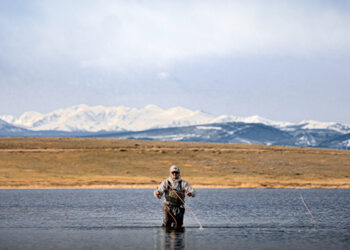The expert advice to answer your most pressing questions. This month, Benjamin Pazian, the aquatics coordinator at the University of South Florida, shares advice on aquatics programming.
What is unique about the University of South Florida’s (USF) aquatics?
BP: Our dedication to the holistic development of our patrons and student employees. We have created initiatives that highlight the talents and education of our employees, leading to successful and impactful programming, and larger retention of users year-round.
What are some of your most popular aquatic programs?
BP: Our private swim and summer swim lessons. These lessons are open to everyone within USF and the surrounding community, are taught by our student certified American Red Cross Water Safety Instructors, and are available to participants of all ages and swimming ability.
Why do you think those specific programs are so popular?
BP: Our swim lesson programs are so popular due to excellent instructors, low cost and our ability to offer these programs to our surrounding community. Our instructors are trained on trends of water safety instruction and our emergency action plan regularly. We have been able to enter Tampa’s saturated swim-lesson market by researching the demographics of our community and then designing lesson programs that cost less than our competitors, while also paying our instructors at competitive rates to ensure instructor retention.
How do you decide what programs to offer?
BP: The first question we ask ourselves is how this program aligns with campus recreation’s mission to enrich the educational experience by providing opportunities that focus on the development of lifelong wellness skills for students, faculty and staff. Along with our mission, we look into how the program will also positively impact USF and the surrounding community. We then take into consideration the program’s ability to bring in populations that typically do not utilize our facilities. Then finally, we review possible contingency plans to ensure the program’s longevity within our three to five-year action plan.
What do you think makes your aquatics department run smoothly?
BP: I believe our dedication to continual trainings and building the team dynamic is what makes our program run smoothly.
What is the biggest lesson you’ve learned?
BP: It is imperative to build a positive team dynamic. Not doing so will be detrimental to the growth of the program and the safety of the patrons. It starts with administration. I approach every component of our program with a positive and motivating attitude; this includes our mission, vision, orientations and trainings. I regularly advocate to the staff the importance of their contributions to each patron that utilizes our services, and how being part of the campus recreation team supports their overall professional development. It ends with the student staff. Instructors and lifeguards must demonstrate competency in their knowledge of their role, required skills and the importance of being part of the team. This ensures the candidate will strengthen our team and advance our mission.










